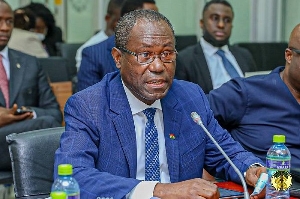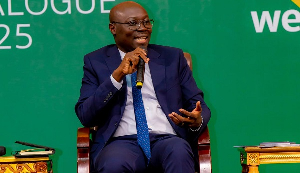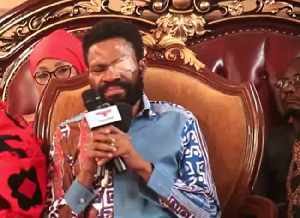The previous managers of the Ghana Cocoa Board (COCOBOD) spent all the $1.8 billion they secured in 2016 under the Mahama administration leaving the state cocoa-buying company with no money for the new management that took over when President Nana Addo Dankwa Akufo-Addo won the presidency in 2017, Chief Executive Officer Joseph Boahen Aidoo has said.
“They [Mahama administration] bought about 600,000 metric tonnes before we came in,” he said, explaining: “With cocoa, the peak harvest period is October, November, December, and January. So, within the first quarter of the season – from October to December 2016 – the previous administration bought over 600,000 metric tonnes.
“When we assumed office, there was no money,” Mr Boahen Aidoo said.
Meanwhile, he noted, “We had to buy cocoa till the end of the season from January to September.”
As a result of the financial challenges of COCOBOD at the time, Mr Aidoo said: “We were forced to go to the Bank of Ghana to borrow.”
“Within that period, we bought over 300,000 metric tonnes and we had to pay the farmers, we had to pay for haulage, the buyer’s margin, and operational costs”, he told Accra-based Joy FM.
“We sought help from the Bank of Ghana who became an intermediary between the Board and the consolidated banks and we got over GH₵2 billion,” he explained.
Ghana is the second-largest exporter of cocoa beans in the world, after Ivory Coast but bad weather conditions have taken a toll on production.
Mr Samuel Adimado, president of Ghana’s cocoa buyers’ group, told Amsterdamnews.com in May this year that the current crop figures were “shattering” and member firms were struggling to remain in business.
Mr Michael Ekow Amoah, deputy director of research at the Ghana Cocoa Board (COCOBOD), also told Amsterdamnews.com that “the challenge that we cannot run away from is climate change.”
“For Ghana, this means that farmers have great difficulty in planning their activities: Some plant too early, before the rains; some plant too late.”
General News of Thursday, 13 June 2024
Source: classfmonline.com













